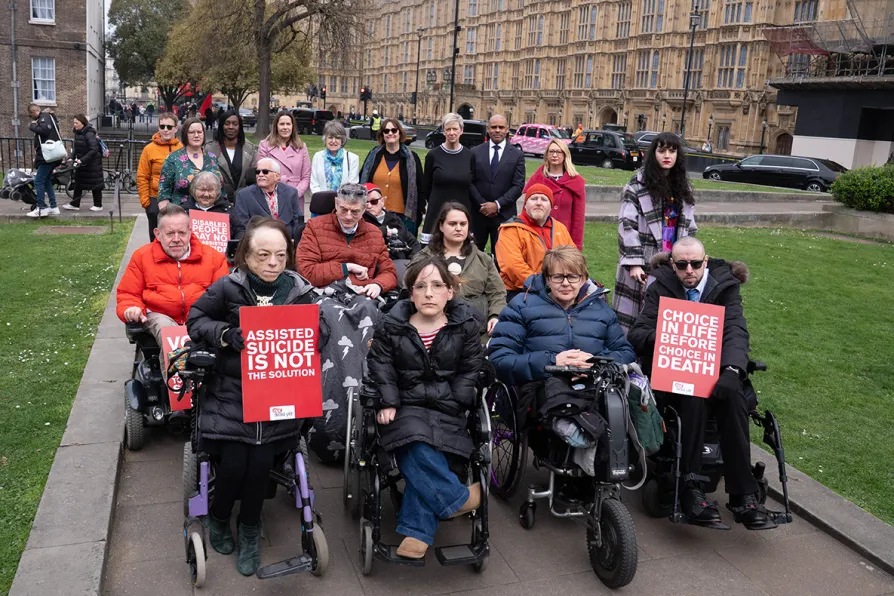
 MPs, Peers and Disability activists, including actress Liz Carr and Dame Tanni Grey Thompson outside the Houses of Parliament, Westminster, to insist the voices of disabled concerned about assisted dying are considered, March 24, 2025
MPs, Peers and Disability activists, including actress Liz Carr and Dame Tanni Grey Thompson outside the Houses of Parliament, Westminster, to insist the voices of disabled concerned about assisted dying are considered, March 24, 2025
SCOTTISH National Party’s Deputy First Minister Kate Forbes has said she will vote against assisted suicide proposals at Holyrood on Tuesday, insisting that no “amount of legal drafting can prevent people feeling pressured to die.”
Ms Forbes will join First Minister John Swinney, as well as former SNP leader Humza Yousaf and present Labour leader Anas Sarwar, in voting against the Lib Dem MSP Liam MacArthur’s Assisted Dying for Terminally Ill Adults (Scotland) Bill.
Speaking on BBC Radio Scotland’s Good Morning Scotland programme today, she warned: “I think it is impossible to provide safeguards that will sufficiently avoid pressure being felt by patients who have received a terminal diagnosis.
“I think the people that are feeling the most concern and trepidation going into this week are disabled people, people who fear that it takes us down a road where, inevitably, across the world, you have seen those arbitrary lines shift.
“Canada legalised euthanasia in 2016 but it’s already scrapped the requirement for a person to be terminally ill and is set to extend that to those with mental illness.
“So there are people that are really worried going into this week about what it will mean for them, and I don’t think any amount of legal drafting can prevent people feeling pressured to die.
“That could be because of a lack of wider support, or because they feel like a burden on others, or just because that is now an option that has to be presented as they receive care and support.
“It’s for those reasons that I will not be able to vote for the Bill, and I sincerely hope that, as a country, we don’t get to a position where the most vulnerable in society feel like they are a burden.”
Despite grown disquiet over his proposals, Mr MacArthur said at the weekend he remained “confident” his proposals would pass its first Holyrood hurdle, arguing the “political mood” in Holyrood is “very, very different from what it was” when two previous attempts at such legislation were rejected by parliament in 2010 and 2015.
He argued: “The conversations I have had over the past four years with colleagues now suggests there is more of a willingness to look for reasons to support rather than excuses to oppose.”














